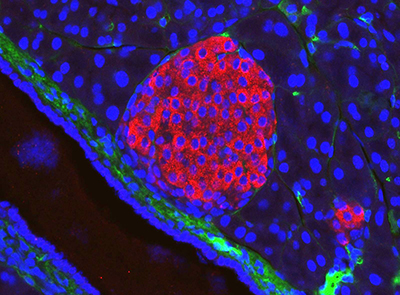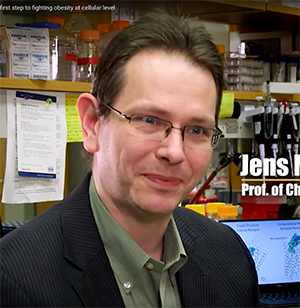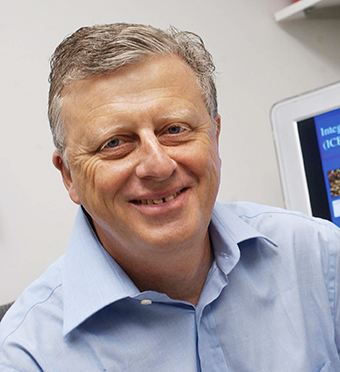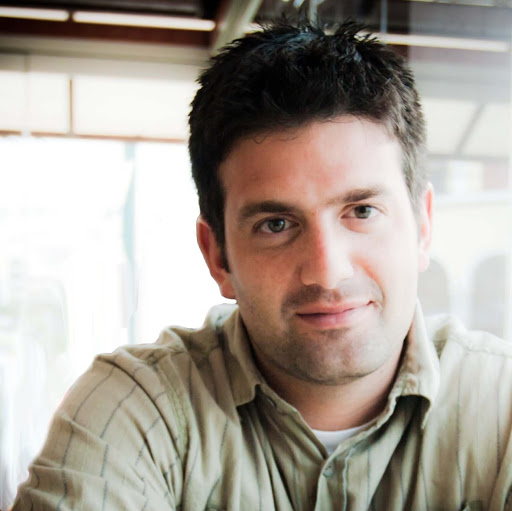Research, News & Discoveries
-

Unraveling genetic mystery next step in Zika and dengue fight
A Vanderbilt team took the next leap forward in using a little-known bacteria to stop the spread of deadly mosquito-borne viruses such as Zika and dengue. Wolbachia are bacteria that occur widely in insects and, once they do, inhibit certain pathogenic viruses the insects carry. The problem with using Wolbachia broadly to protect… Read MoreMay. 8, 2018
-

Looking beyond the ‘magic bullet’ approach to drug discovery
It’s time to move beyond the traditional “magic bullet” approach for discovering new drugs and start leveraging the full complexity of Mother Nature, according to Vanderbilt Professor of Chemistry Brian Bachmann and Assistant Professor of Cell and Developmental Biology Jonathan Irish. The researchers have developed a new process that can rapidly and inexpensively… Read MoreMay. 8, 2018
-

Elizabeth Gibson awarded the 2017 AAPS Foundation Fellowship
Elizabeth Gibson, a third year student in the Neil Osheroff Lab, has been awarded the 2017 AAPS Foundation Fellowship for her work on antibacterial-drug-resistant TB. Read more… Read MoreMay. 8, 2018
-

How the skin protects
Epidermis, the outermost layer of the skin, provides the critical protective barrier needed for terrestrial life. The process of epidermal barrier formation includes conversion of the essential fatty acid linoleate into skin-relevant oxidized lipids. Two lipoxygenase enzymes, 12R– LOX and eLOX3, initiate this conversion pathway. An inactivating mutation in either… Read MoreApr. 19, 2018
-

Exploring Maturation of Pancreatic β-cells
Exploring Maturation of Pancreatic β-cells The β-cells of the pancreatic Islets of Langerhans play a major role in glucose homeostasis through their production of insulin, and they change in their ability to release insulin in response to glucose during development. Fetal and neonatal β-cells secrete more insulin basally and… Read MoreApr. 18, 2018
-

Fighting obesity at the cellular level
An international team has uncovered the potential to beat obesity at the cellular level, characterizing for the first time a complex, little-understood receptor type that, when activated, shuts off hunger. Jens Meiler, professor of chemistry and pharmacology at Vanderbilt University, said pharmaceutical companies long have attempted to develop a small-molecule… Read MoreApr. 18, 2018
-

“Idling” cancer cells may return
About half of all melanomas have mutations in the BRAF gene that accelerate tumor cell growth and spread. While most patients benefit from targeted anti-BRAF therapy, resistance to treatment and tumor progression is almost inevitable. Vito Quaranta, MD, and colleagues studied the response of several BRAF-mutated melanoma cell lines to BRAF inhibitors. Reporting March 27 in the Biophysical… Read MoreApr. 12, 2018
-

Kathleen Gould wins SEC Faculty Achievement Award
Kathleen Gould, Louise B. McGavock Professor of Cell and Developmental Biology in the School of Medicine, is Vanderbilt’s winner of the 2018 Southeastern Conference Faculty Achievement Award. The awards, now in their seventh year, are an initiative of SECU, the academic arm of the Southeastern Conference, and recognize senior faculty at… Read MoreApr. 2, 2018
-

Deerfield Management, Vanderbilt University announce launch of Ancora Innovation
Deerfield Management and Vanderbilt University announced today the launch of Ancora Innovation, LLC (“Ancora”), a Deerfield company that will support Vanderbilt’s innovative life science research and leverage Deerfield’s expertise in accelerating state-of-the-art drug development. Ancora will fund projects with the aim of changing the current paradigm of drug development and establishing novel… Read MoreMar. 30, 2018
-

What protein is that?
Imaging mass spectrometry (IMS) makes it possible to see the spatial distribution of molecules in a thin tissue section based on their molecular masses. It is a powerful tool for biomarker discovery, but identifying proteins detected by IMS remains a difficult task. Jeffrey Spraggins, PhD, and colleagues in the Mass Spectrometry… Read MoreMar. 30, 2018